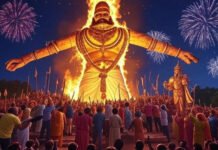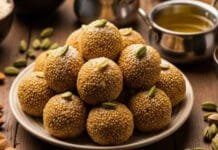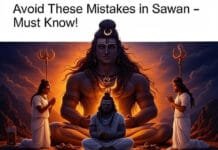January 2025 Hindu Fasts and Festivals: A Comprehensive Guide
The month of January 2025 is brimming with significant Hindu fasts and festivals that hold immense religious and cultural importance. From Pausha Putrada Ekadashi to Makar Sankranti, and from Lohri to the auspicious Mahakumbh Shahi Snan, this month offers a spiritual feast for devotees. Below, we present a detailed guide to all the major observances, their significance, and rituals to help you plan and participate fully.
Pausha Putrada Ekadashi – January 10, 2025
Pausha Putrada Ekadashi, observed during the Shukla Paksha (waxing phase of the moon) in the Hindu month of Pausha, is a day dedicated to Lord Vishnu. On this day, devotees seek blessings for the well-being of their children and pray for progeny. The rituals include:
- Fasting from sunrise to sunrise, consuming only fruits and water.
- Offering prayers to Lord Vishnu with sacred items such as tulsi leaves, flowers, and incense sticks.
- Reading the Ekadashi Vrat Katha and singing hymns dedicated to Lord Vishnu.
- Distributing alms and food to the needy.
Fasting on this day is believed to bring prosperity and harmony to the household.
Pradosh Vrat (Shukla Paksha) – January 11, 2025
Pradosh Vrat, dedicated to Lord Shiva, is observed during the twilight period, known as “Pradosh Kaal.” The rituals are:
- Performing Shiva Abhishekam with milk, honey, curd, and Ganga water.
- Chanting “Om Namah Shivaya” to seek divine blessings.
- Observing a fast throughout the day, breaking it after offering prayers in the evening.
- Visiting Shiva temples and lighting lamps.
Devotees believe that observing Pradosh Vrat brings peace, prosperity, and blessings for a happy life.
Pausha Purnima and Lohri – January 13, 2025
Pausha Purnima
The full moon day of the month, Pausha Purnima, is considered highly auspicious for bathing in holy rivers like the Ganges. Devotees also worship Goddess Lakshmi and Lord Vishnu on this day. Key observances include:
- Taking a holy dip in the morning to purify the soul.
- Performing Satyanarayan Puja and offering prasadam.
- Donating food, clothes, and money to the underprivileged.
Lohri
A popular festival in northern India, Lohri marks the end of winter and celebrates the harvest season. Rituals include:
- Lighting a bonfire and offering til (sesame seeds), gur (jaggery), and rewari.
- Singing traditional songs and performing bhangra and gidda dances.
- Sharing sweets and snacks with family and friends.
Makar Sankranti – January 14, 2025
One of the most widely celebrated festivals, Makar Sankranti, signifies the transition of the sun into the zodiac sign Capricorn (Makar). Key traditions include:
- Flying colorful kites to mark the joyous occasion.
- Preparing and distributing sweets made of sesame seeds and jaggery, symbolizing unity and harmony.
- Taking a dip in sacred rivers like the Ganga, Yamuna, and Godavari to cleanse sins.
- Participating in charity and donations, particularly of food and warm clothing.
Makar Sankranti is a day of spiritual rejuvenation and the beginning of new endeavors.
Sakat Chauth Vrat and Sankashti Chaturthi – January 17, 2025
Sakat Chauth, also known as Sankashti Chaturthi, is observed in honor of Lord Ganesha. It is believed that fasting on this day removes obstacles and ensures success. The rituals are:
- Observing a strict fast, consuming only water and fruits.
- Worshipping Lord Ganesha and reciting the Ganapati Atharvashirsha.
- Breaking the fast after moonrise by offering arghya to the moon.
This vrat is particularly beneficial for those seeking health, wealth, and wisdom.
Masik Shivratri and Pradosh Vrat (Krishna Paksha) – January 27, 2025
Masik Shivratri, observed on the 14th night of the waning moon, is a day of profound spiritual significance. Devotees worship Lord Shiva through:
- Observing a day-long fast.
- Performing night vigils and chanting mantras like “Om Namah Shivaya”.
- Offering prayers with bael leaves, water, and milk.
This day coincides with the Pradosh Vrat of the Krishna Paksha, amplifying its auspiciousness. Devotees believe that observing these vrat removes negative energies and enhances spiritual well-being.
Magha Amavasya (Mauni Amavasya) – January 29, 2025
Mauni Amavasya, observed on the no-moon day of the Magha month, is a day of silence and meditation. Key traditions include:
- Taking a holy bath in sacred rivers during Brahma Muhurta.
- Observing a moun vrat (vow of silence) to attain inner peace.
- Worshipping Lord Vishnu and lighting lamps to dispel darkness.
- Donating food, clothes, and money to the needy.
It is believed that these practices on Mauni Amavasya cleanse the soul and invite divine blessings.
Gupta Navratri Begins – January 30, 2025
Gupta Navratri, also known as Magha Navratri, begins on January 30, 2025. This nine-day festival is dedicated to Goddess Durga and her nine forms. Unlike the Chaitra and Sharad Navratris, Gupta Navratri is celebrated privately with an emphasis on spiritual practices. Devotees:
- Perform daily pujas and recite Durga Saptashati.
- Observe fasts to purify the body and mind.
- Offer prayers with flowers, fruits, and incense.
Gupta Navratri is a time for spiritual awakening and personal transformation.
By observing these auspicious days, one can invite peace, prosperity, and positivity into their lives. We encourage everyone to participate in these rituals with devotion and sincerity.
















